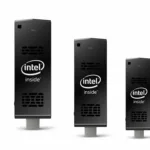Millennials aren’t really into playing the lottery. They still buy tickets a few times a year on average. The only time millennials become interested in lottery games is when they see a big jackpot prize coming up, like for instance the $1.6 billion US Powerball jackpot prize last year that drove the internet crazy. However, in comparison to many of their parents, who buy tickets on a weekly basis, millennials are less interested in lottery games and prefer online games.
Nonetheless, some lottery companies such as Lottosend, have brought the “old-fashioned” lottery world online recently. Such companies are changing the way Millennials view the “boring” or “outdated” game that their parents love so much and play so often.
According to millennials, the problem with lottery games is not that the game is a waste of money or is not fun enough. The problem is that they have to spend a lot of time driving to a lottery retailer shop or gas station as compared to online games, which they can access at the tap of a finger. Millennials have become accustomed to doing everything online through their smart-phones and laptops.

However, when a huge jackpot comes up, they are willing to spend the time it takes and go out of their way to buy a Powerball or OZ Lotto ticket.
Online lottery games are slowly but surely winning millennials because they just have to have every new app that can help streamline their lives.
Playing the lottery doesn’t have to seem so outdated anymore. Similarly, it is no longer the game of the older generation only anymore. Today, more and more millennials are participating in online lottery games.
Globalization of lotto games is another advancement in the online world today. For example, people from Europe can play the Australian Oz Lotto game online. At the same time, people in Canada can buy Italian SuperEnalotto tickets online through lottery websites.

The top 5 online lottery websites get over 10 million hits per month together world-wide and this number is growing day by day.
New companies are developing new websites and apps. Furthermore, there has even been a launching of a decentralized online lottery game that uses block chain technology (Etherium).
These websites, companies, apps and platforms cater to the millennials and the younger generations. Trends are showing that more people are playing lottery games online than ever before and less people are buying tickets at local reseller shops and kiosks.
One of the highlights of this new online lotto trend happened back in December of 2015 when a man from Iraq (yes you heard it right – Iraq!) purchased an Oregon Megabucks lottery ticket online and won a $6.4 million jackpot prize.
This is the first occasion that a person from abroad, a non-US citizen, won an Oregon lottery jackpot prize. Lottery officials were more than surprised.
The Iraqi man received his winnings in full from Oregon lotto without any problems.
Lottery officials say that they have decided to respect his request to stay anonymous, taking into account his circumstances in Iraq, even though lottery winners are declared publicly in the state of Oregon.

However, this is not to say that online gaming is not without its challenges. Critics say that online gaming not only preys on the poor, but also removes the joys of the old fashioned ways of playing the game through purchasing the tickets in a store as a daily routine. Further, there is a fear that online gaming increases compulsive gambling. Nevertheless, the total revenue of online lottery games has increased to almost sixty million dollars annually in the past decade alone.
It has become apparent that the best way to reach our younger generation is through moving lottery games online. Paying the lottery becomes as easy as registering on the online platform and running your credit card. On the other hand, lottery companies get to increase their sales and at the same time, build a passion for the game among our millennials. Therefore, lottery companies in states such as Michigan have embraced this new future and moved the game online. However, there are still many milestones ahead for such companies as they have to combat the challenges that come with online gaming such as addiction and constant criticism from a selected few.








